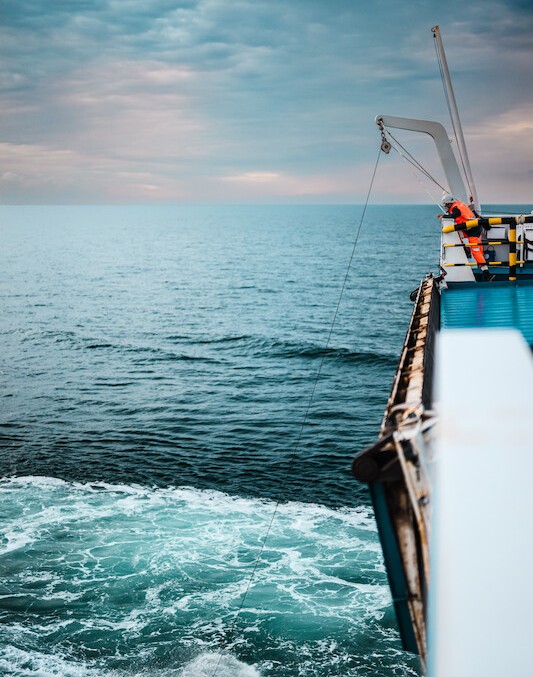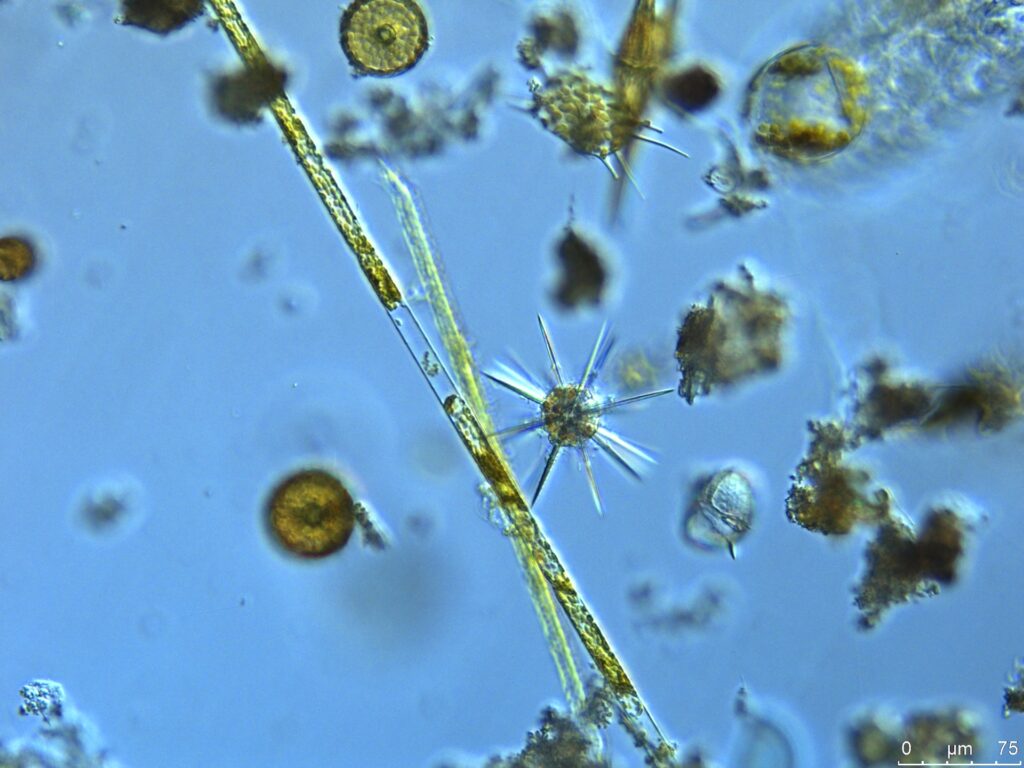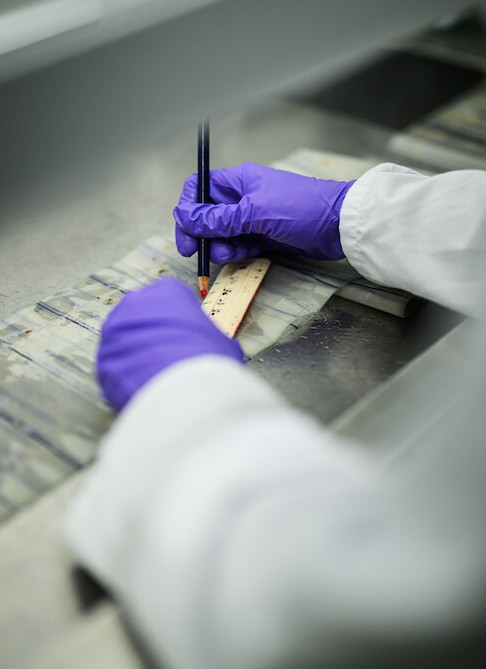The Irish Sea is one of the UK’s most economically and ecologically important marine regions. Supporting everything from biodiversity and renewable energy to fisheries and coastal communities, it is under increasing pressure from pollution, climate change, and intensive human use. At the forefront of efforts to understand and protect this vital ecosystem is the Marine Biological Association (MBA), playing a key role through its internationally recognised Continuous Plankton Recorder (CPR) Survey.
David Johns, Director of the CPR Survey at the MBA, is co-author of a new article, Integrated marine monitoring to protect the Irish Sea, published this week by a coalition of marine scientists. The article highlights how collaborative efforts between UK government agencies and research organisations are transforming the way we monitor and manage marine environments.

The unique legacy of global plankton monitoring
The MBA’s CPR Survey is the longest-running and most geographically extensive marine biological monitoring programme in the world. Since the 1940s, it has used “Ships of Opportunity”, commercial vessels travelling their regular routes, to tow mechanical plankton recorders through surface waters. These devices collect samples of microscopic plankton, which are then identified and analysed in MBA laboratories.
This long-term dataset, with nearly 700 plankton taxa identified across global waters and a Guinness Record-breaking 7.5m nautical miles travelled, has provided invaluable insights into climate change, biodiversity shifts, and ecosystem health. In the Irish Sea, the CPR’s “IN” route, operating between Liverpool and Dublin since 1970, has collected more than 4,000 samples, offering an unparalleled record of change across decades.

“These data are essential for contextualising changes observed in coastal and offshore environments. By integrating CPR data with nearshore and estuarine monitoring, we can build a clearer picture of how pressures like pollution and warming waters are affecting the base of the food web – plankton – across the region.” David Johns, Director of the CPR Survey.
Connecting the dots from estuary to open sea
The new article, authored by scientists from the Centre for Environment, Fisheries and Aquaculture Science (Cefas), the Environment Agency (EA), the Agri-Food and Biosciences Institute (AFBI), Natural Resources Wales (NRW) and the MBA, showcases a shift towards ecosystem-based monitoring. By pooling expertise, data, and technology, these organisations are bridging the gap between inshore, offshore, and long-term observational datasets.
The CPR Survey is a crucial offshore component in this integrated network. While coastal agencies monitor water quality and plankton communities from the estuaries out to Liverpool Bay, the MBA’s CPR data provide large-scale and long-term context, helping agencies to understand whether local changes are part of wider regional or global trends.
Tackling pollution and protecting biodiversity
The Irish Sea’s complex catchment includes heavily populated urban areas and intensively farmed agricultural lands, leading to increased nutrient inputs and pollution. Changes in plankton communities, the foundation of the marine food web, are early warning signs of broader ecosystem shifts.
By monitoring plankton diversity, biomass, and timing, the CPR Survey helps detect eutrophication, assess biodiversity changes, and support statutory reporting under UK and international frameworks such as the Water Framework Directive, OSPAR, and the UK Marine Strategy.
David and the MBA played a pivotal role in the development of the first-ever global Plankton Manifesto. This landmark document, launched during the 79th session of the United Nations General Assembly in New York, underscores the critical importance of plankton in addressing the interconnected global crises of climate change, pollution, and biodiversity loss. The Manifesto aims to gain endorsements at key global environmental conferences, including the upcoming high-level United Nations Ocean Conference in Nice, France, in June 2025.
As part of the marine Natural Capital and Ecosystem Assessment (mNCEA) programme funded by Defra, the CPR Survey is being integrated into larger efforts to understand how pollution and climate change are affecting ecosystem services such as carbon storage, fisheries productivity, and water quality.

A call to action: Support marine science
This collaborative success story underscores the value of long-term, shared data and the vital role the Marine Biological Association plays in marine science and policy. But this work depends on continued support.
By becoming a Member of the MBA, you will help to support critical research such as the CPR Survey, a programme that not only underpins policy decisions but also drives our understanding of the oceans in a changing world.
Join the MBA today to become part of a growing community working to understand, protect, and restore the ocean.
Save 25% with Code: Ocean25
- Offer valid from 7- 31 May 2025 (Monthly payments only)
- Join here.
Together, we can ensure the health of our seas, from the Irish Sea to the Arctic, for generations to come.